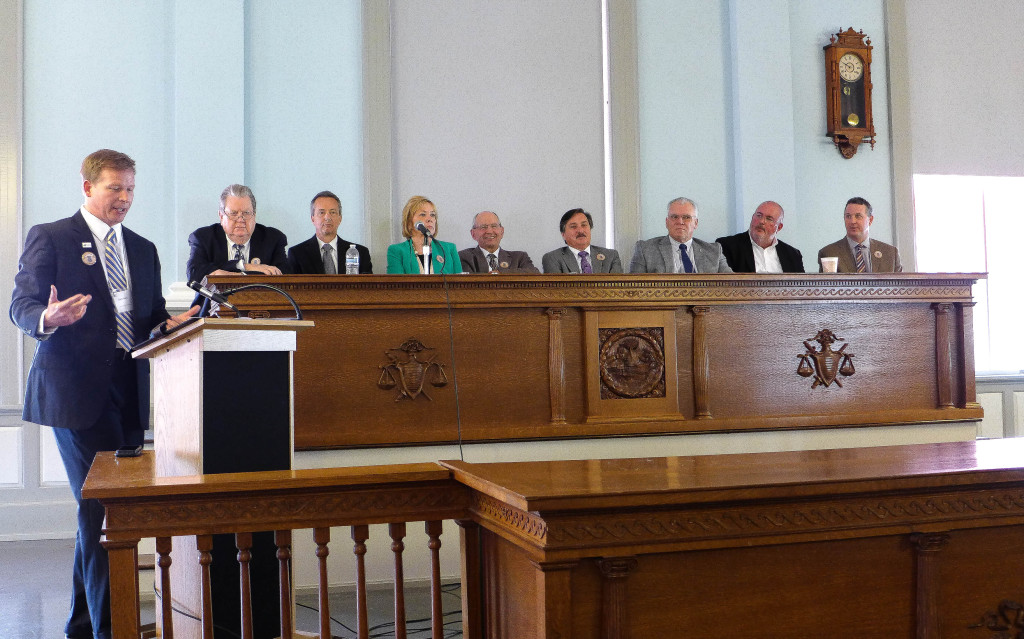
Panelists (from left to right): Chris Hart, president and CEO of CareerSource Florida; William Hogarth, director of the Florida Institute of Oceanography; Larry Langebrake, director of SRI International’s Marine Technology Program; Shelley Lauten; founding partner of triSect, LLC; James Murley, executive director of the South Florida Regional Planning Council; David McDonald, president and founder of McDonald, Miller and Coleman; Paul Phipps, chief marketing officer of VISIT FLORIDA; Phil Purcell, executive director of the Marine Industries Association of South Florida; Michael Sole, vice president for state governmental affairs of Florida Power and Light Company.
TALLAHASSEE — When it comes to hiring, coastal industry leaders say that universities are not in touch with the needs of the industry.
Earlier this month, in honor of Florida Oceans Day, a panel of leaders from ocean and coastal industries met with leaders from Florida universities at the Florida Capitol to discuss the needs of the industry versus what skills graduates have when they finish college.
The eight panelists, brought together by the Florida Ocean Alliance and sponsored by Florida Sea Grant, offered suggestions on how they thought the gap between academia and industry should be closed to ensure future workforce readiness.
Most of the panelists agreed on the major issues facing Florida’s coasts in the next 10 years: oil spill mitigation, sea-level rise, population growth and seafood sustainability were some of the major concerns.
Phil Purcell, executive director of the Marine Industries Association of South Florida, said he believes the coastal industry needs someone like Steve Jobs.
“Kids look at poster people,” Purcell said. “We need poster people for the ocean industry, mentors with faces.”
William Hogarth, director of the Florida Institute of Oceanography, said he thinks academic institutions need to look more closely at what the industry wants and needs when designing courses.
“People from the industry need to go into the classroom and show students where the coastal industry is headed,” Hogarth said.
Larry Langebrake, director of SRI International’s Marine Technology Program in St. Petersburg added that with the ever-increasing amount of environmental data, the educational system also needs to build capacity for technician jobs.
Shelley Lauten, founding partner of triSect, LLC, a multisector consulting firm, said one of the problems is that industry and academia use different vocabulary. She believes an alignment of the two would help ensure students are graduating with relevant knowledge.
“We have to look at things from a multidisciplinary way,” Lauten said. “Academics need to get out of their silos and think differently about how to solve problems.”
In the end, the panelists concluded that the coastal industry needs to make academics more aware of the issues at hand in order to prepare a workforce ready to tackle the future and sustain Florida’s coastal economy.
Chris Hart, the session’s moderator and chief executive officer of CareerSource Florida, concluded the panel with one statement.
“The questions that we ask do in fact matter in terms of the answers that we get.”



